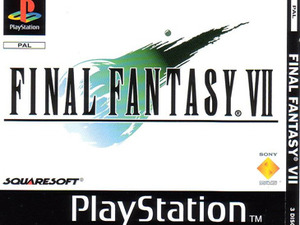Going back in time
I love 1966. The Beatles, mini-skirts, the World Cup win: an England casting off the last dullness and depression from the war and celebrating in Technicolor to become Cool Britannia (version 1.0).Of course, I wasn’t born until 1980. I learned all about 1966 – that goal, those records – from World Cup 06 specials invoking the 66 win for a halo effect, from re-issued CDs with bonus tracks, from Austin Powers, from ‘I love 1966’ clip-shows on TV. I love 1966, but I was never there.
Pop culture relentlessly mines the near-past, but games, it seems, are behind our endlessly repeating times. Compared to pop music, fashion and film, which revere their recent past, games are relentlessly forward focussed. Partly this has been due to the progression of the hardware. As each new generation of console or graphics card has doubled or tripled the quality of game’s graphics, there has been a tendency to see the polygon count as progress. If we play old games, then we play them as sequels, spin-offs or, most dreaded of all, re-imaginings like Doom 3, a game so dull I would really have liked a copy for my flight to Taiwan, since it would have put me to sleep sooner than all the bad action movies showing on the plane.


Doom and Citizen Kane - both genre classics.
If gamers do return to the originals, it is generally an act of nostalgia. Get the SNES down from the top cupboard, blow the dust off the cartridge-edges, or maybe download MAME and scour the web for a few ROMs, titles half-remembered from the good old days.
This experience isn’t new though: it’s like going through a box of old photos, only with old sprites instead of old smiles. With films and music, we’re actively encouraged – by best of lists, attractive re-packaging and the fact that old movies like Scarface rock – to go back and find the classics. What I’ve been wondering recently is can you do this with games? Having recently played Oblivion, and having acquired a PlayStation 2 as well, it seemed the perfect time to find out.
Old v New


Final Fantasy VII, on the PlayStation, is so popular it has even spawned a dedicated sequel film, Advent Children.
Oblivion has been acclaimed as one of the best PC RPGs ever, so I thought a comparison to a console RPG would be good – and the best ever, for many people, is Final Fantasy VII, a game I’ve never played. Since the PS2 can run PS1 games, I picked up a copy from Ebay. At the time of its release, nearly ten years ago, FFVII received rave reviews from the press and the public (see this Gamespot review), and it has a claim to being the best loved Final Fantasy game: one that has spawned numerous spin-offs (like the recently released Advent Children movie), and that continues to excite gamers. In a ‘Top 100 Games’ of all time, it would be up there in the single digits. It is, by all accounts, Sergeant Pepper-Citizen Kane great.
If something is great, it should be great whenever you pick it up – buy a fresh copy of Pepper or Kane now and they’ll still blow you away: they were great in ‘67 and ‘41, and they’re great now. Is the same true of FFVII?

MSI MPG Velox 100R Chassis Review
October 14 2021 | 15:04










Want to comment? Please log in.